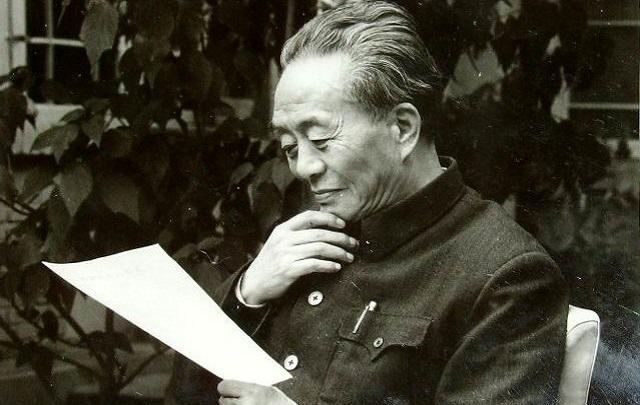
(Mr. Ai Qing Photos)
Author/Xiao Xue (Director of Long March of Chinese Poetry Organizing Committee)
In 2010, I wrote in the article "The Soul of Chinese Poetry in the Twentieth Century" to commemorate the centenary of Ai Qing's 100th birthday: "Ai Qing's unremitting pursuit, constant creation, and radiant artistic youth span the three 30 years of the development history of Chinese new poetry. Throughout his life, he has experienced severe tests in prisons, wars, and 22 years of rightists in the Great Northern Wilderness, Gobi Desert, blizzards, blizzards, extreme heat, and extreme cold. He has his own unique and profound experience of the land, people, motherland, times, and cosmic life. Realization and unique thinking are only through my outstanding artistic talent and excellent poetry creation, so full and strong, so deep and powerful, so full of personality, and wonderfully express the feelings of the times and the voice of the people. Therefore, we say, Ai Qing is a great representative of Chinese new poetry and a master of poetics in the 20th century, and the soul of Chinese poetry in the 20th century."
This year is the 110th anniversary of Ai Qing’s birth, and he has been away from us for 24 years. I think of what he said in the article "Poetry and Times" written more than 80 years ago: "This great and unique era is looking forward to and selecting its own great and unique poet." And " Poets belonging to this great and unique era must devote their lives to the era with the greatest width, accept the sufferings of each day like the persecution of those missionaries, and immerse themselves in the grief and joy of the people with their sincere heart, Among hatreds and desires. Their (the poets of this era)'s creative intention stretches in front of the aspirations of mankind towards tomorrow. Only the poets who do not resist the common will of this mankind will be revered by mankind today. , Being chased by humans of tomorrow."
Ai Qing's life-long creative practice, tremendous achievements, and its broad and far-reaching impact fully show that in the history of the development of Chinese new poetry, he is exactly what we have expected and selected from our time, and "respected by human beings today" will also be The "great and unique poet" that will be pursued by human beings tomorrow.
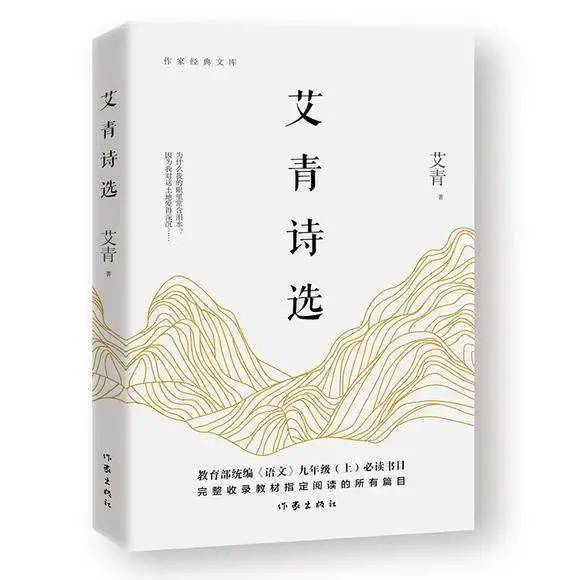
1
The reason why Ai Qing is "great and unique" is that he is "loyal to the times and dedicated to the times." Feeling the pulse of the times, listening to the call of the times, keeping up with the footsteps of the times, singing the song of the times deeply instead of shallowly and uniquely instead of floating, is Ai Qing's lifelong pursuit. As early as 1939, he emphasized this way: "The greatest poet is always the spokesperson of the era in which he lives; the highest artwork is always the most authentic record of the emotions, fashion, fun, etc. that produced it. "On May 24, 1982, at an academic seminar commemorating the 50th anniversary of his creative life, he said: "The road I have traveled is the road that the times have traveled. The great wheel of the times has driven me to advance step by step. ""If my work has some effect, it is because it is integrated with the times and people's lives."
In the early 1930s, he spent 3 years and 3 months in a dark life in an old social prison, causing him to "change from painting to new poetry" and wrote a piece including "Daya River-My Nanny". The 25 lyric poems including masterpieces produced the first fruits of his singing era. In the "Miyun Period" on the eve of the Anti-Japanese War, he and the suffering people "in deep anger" longed for the rise of the national spirit, and issued a warm call "Please give me fire, give me fire"; When the whole nation's anti-Japanese war broke out, he "swept away the melancholy of the past" and sang passionately "the land of resurrection"; he held up "torch", ran to "to the sun", issued the "dawn notice", in a cheer "Outstretched arms" ushered in the victory of the people and the establishment of the People's Republic of China. After being "returned" in the midst of historical twists and turns, he once again "saw the real light", miraculously youthful, inspired like a spring, with his language of light and wisdom flowing, and with his affectionate love His brushstrokes, with his profound philosophical conception, wrote a unique song of the times, which reached another peak in his poetry creation in the rare years.
From "Spring" and "Coal Dialogue" on the eve of the Anti-Japanese War, to "I Love This Land", "To the Sun", "Trumpeter" and "Torches" during the early period of the Anti-Japanese War; from "Time", "Wild Fire" and "Dedication to the Country" during the Yan'an Period "Poetry", to "Spring Girl", "Atlantic" and "Poetry written on colored paper" in the early 1950s; from 20 years of silence to "On the Waves", "Fish Fossil" and "Anthem of Light" after the comeback "Welcome to a charming spring"... We can see that Ai Qing is worthy of being the "most faithful spokesperson" of our great era. In the process of "advancing hard step by step", he dedicated 20 long poems, thousands of short poems and more than 30 collections of works. From all his works, we have heard the rolling wheels of the times and the footsteps of progress, and we have seen the storms and waves of the times, the changes of the times, and the joys and sorrows of bitterness. We have heard the echoes of history and the call of the people from all his works, and felt that mankind will never cease to pursue the light and hope for the future, thus obtaining rich artistic enjoyment, profound ideological enlightenment and great spiritual inspiration . The poet sings a great and unique era. The great and unique era also nurtures, casts, and jades into its own great and unique poets. The poet shows us that under the broad historical and cultural background, he himself is closely related to the times and has an active and exciting, rich and beautiful spiritual world. In a series of excellent poems, he expresses the kind of fusion of history, reality and future, It combines the aesthetic feelings and aesthetic ideals, so it can not only give people a strong touch but also give people a profound enlightenment of the poetry of the great era. His poems are "a kind of flash of human upward spirit", "a message sent by humans to the future", and can "give humans the courage to ideals". In his life, he longed for the light, pursued the light, and praised the light. His poetry runs through a common theme, which is to symbolize science and truth, symbolize wisdom and ideals, symbolize the hope and future of mankind, symbolize the development trend of the times and A bright ode to the direction of history.
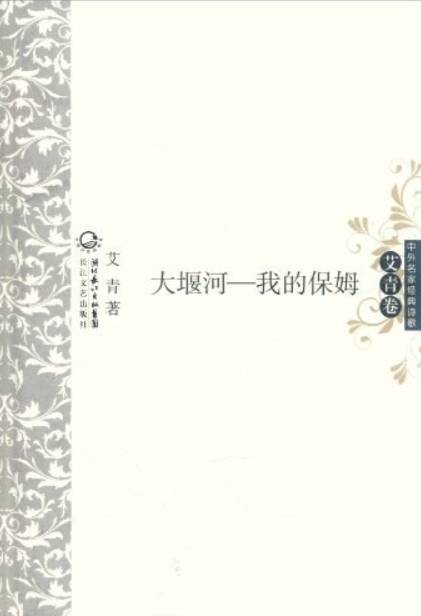
2
Breathe with the people, share the fate, take root, love the people, represent the people, sing the people, and use their poems to convey the hearts of the people. This is the main symbol of whether the poet can feel the pulse of the times and express the spirit of the times. The fundamental characteristic of the great poet. The reason why Qu Yuan's "Li Sao" is immortal lies in the poet's deep emotion and lofty spirit of "how hard it is for the people to live." The reason why Du Fu's poems are "glorious" is because he has "poor years and worry about Li Yuan, sigh The "intestinal fever" anger and deep feelings. Pushkin, the father of Russian poetry, said: "My everlasting integrity is the echo of the Russian people." Petovy, the patriotic poet of Hungary, said: "Whoever is a poet must move forward, and spend all his time with the people. "
Ai Qing is exactly the same. As early as 29 years old when he wrote "On Poetry", he clearly declared: "Always be with the people and understand the beauty of their souls, and only they can save the world from sin." Later, he did it more than once Said: "The poet can only win the trust of the people only when he is with the people, his joys and sorrows are consistent with the people, and wisdom and courage come from the people." Inspection. The so-called conscience is the people's interests and wishes. The people's heart is the touchstone."
Ai Qing grew up drinking the milk of the farmer's nanny Dayehe (Dayan River). His temperament, his personality, his life, his soul all show that he is a true "son of the people." From the time he wrote his first poem, his creative career for more than half a century, in "every major historical period", he was lyrical for the people, shouting for the people, singing for the people. All his creations epicly and profoundly reflect the revolutionary and historical process of the Chinese people's turbulent and earth-shaking revolution in the past 100 years. They truly, uniquely and heartily reflect the people's emotions, desires, thoughts and pursuits at all stages of history:
Why do my eyes often contain tears?
Because I love this land deeply...
This "seems to be a sound from the bottom of the stratum, a deep flood that shakes the ground." This is like a poem that shocks the soul from the depths of history and echoes on the vast earth. It is a poet. It was written 82 years ago and is still frequently quoted. In-depth observation of the real life in the rural areas of old China, real insights and deep reflections on the historical destiny of the Chinese people led the poets to write "Dayan River-My Nanny", "Transparent Night" and "Snow" on the eve and early of the Anti-Japanese War A large number of excellent poems such as "Land on China", "North", "Trolley", "Dialogue of Coal", "I Love This Land", etc., have a broad, deep and heavy ideological and artistic connotation, and also show that the poet and the people feel the same Flesh-and-blood connection.
After arriving in Yan'an, he saw the prosperous weather in the countryside under the leadership of the Communist Party of China, saw the hope and future of the Chinese people, wrote a new song of the people, wrote "The Word of the Sun", "Wild Fire" and "Cuckoo Collection" "Notice of Dawn" and a series of poems expressing people's joy in fresh and bright tones. The poet's eyes also pay attention to the changes in the international situation and the destiny of people around the world. The early creations of "Paris", "Marseille", "Europa", "Rebellion of Toulon" and so on have shown the poet's broad vision and broad mind. His visits to the Soviet Union and South America wrote "The Red Star of Gems", "Travel in South America", and many excellent poems written in the international era after the comeback of the new era, which further shows that the great and unique poets of our time face the world and the future. , A broad mind and deep feelings connected with the hearts of the people of the world.
The hard work in the Great Northern Wilderness and the life of cleaning the toilet in Xinjiang have made Ai Qing intimate with ordinary working people, so that he has more and more in-depth insight and understanding of the people's ideology, feelings, will and inner world. . He said: "The poet must have the "political sensitivity" consistent with the people", and "there must be the "political firmness" consistent with the people", "The poet must think about the sharp issues raised by the contemporary with the people, and the people Answer them together." He enthusiastically called out the contemplating poets:
"True poets, let us feel the pulse of the people! Let us have a deeper understanding of what the people are yearning for? What the people are asking for? Let us feel a little body temperature from the people!"
"As long as we are with the people, we should be optimistic."
"Let's sing with the people!"
Ai Qing said these words emotionally. He said at a meeting: "One thing is conscience, that is, I write poems and essays are all emotional, all written with'heart'. Some poems, I wrote it myself, tears shed Some poems, for many years, will shed tears when I read them. I write poems and always want to dig out my heart."
This conscious pursuit of "thinking with the people", "singing with the people", "always want to dig out the heart", deep understanding, sincere feelings and strong desires make the poets burst into passion after entering old age He wrote "On the Waves", "Listen, there is a voice", "Praise of Light", "The Colosseum of Ancient Rome", "Bonsai", "Mirror", "Found Each Other" and many other "return songs" ". These wonderful and exquisite poems condensed the poet's richer and more complex experience and sentiment, reflecting the poet's more extensive and in-depth observation and thinking about the life of the times and the fate of the people, thus singing the people's voice in a richer and deeper sense. When we "pass through the long night", "awaken from thousands of deceptions", "learn from cleverness from thousands of fools", and then read the poet's "Psalm of Light" again and again, comprehending what he sang The light that knows the radiation and does not ask for compensation, the light that "the Grand Duke is selfless and shines on all sides", the light that has "the enthusiasm of fire, the steadfastness of crystal", the light that "all the beauty is with the light", it will feel that it is better than the poet Some poems written in the early years have richer, thicker, more profound and profound ideological and artistic connotations.
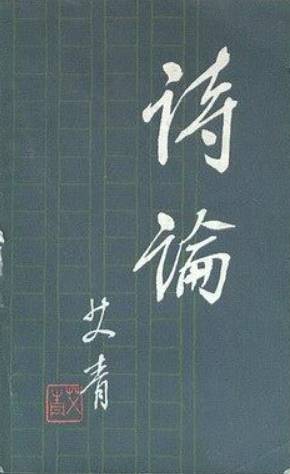
3
While insisting on breathing with the people, sharing the destiny with the motherland, and the pulse of the times, Ai Qing always attaches great importance to the characteristics and laws of the poem itself, always attaches great importance to the originality and artistic beauty of the poem, always attaches great importance to the poet must go his own way , Have their own artistic personality and unique style. He said: "The poems I love are the most personal poems, and they are written with different styles, different techniques, and different ways of thinking." He emphasized that poets must always think of when writing : "Do I have'myself' stuff? Do I have'my colors and lines and composition?'Can't just write and write, but there is nothing'."
His unique and distinct artistic personality is first manifested in his lofty personality, broad mind, beautiful sentiments and his deep and passionate love for the people of the motherland and the human world. He always emphasized that "a poet must speak the truth", "the most sincere love must be delivered", and "a poem is a living sculpture of the soul", "a poem is a personality, and it must be noble and complete. "His sincere and strong, broad-hearted love, strong perseverance, fortitude and lofty personality traits penetrate and reflect in all his works. In terms of spiritual temperament, Ai Qing's "myself", his unique and distinctive artistic personality, shows the characteristics of unrestrained and solemn, chic and steady, lively and witty, humorous and solemn. In terms of poetry style, Ai Qing's "myself", his unique and distinct artistic personality, is manifested as clear and subtle, simple and rich, natural and simple and deep. Ai Qing hates the pretentious "enthusiasm", the esoteric esotericity and the emptyness of nothing, and the "gorgeousness" of rhetoric. He believes: "Noble will and pure soul are often more profound and long-lasting than beautiful forms and carved words." He believes that "deep and broad thoughts are expressed in the most plain language. The most ideal poem." He has always maintained a simple, transparent, sincere, frank, hot and calm heart of Chi Zi. His thick lips never tell lies. His bright and wise eyes will never conceal his feelings. For all truth, goodness and beauty, it will show heartfelt joy and infinite love. For all false, evil, and ugly, it will immediately spray out anger and hatred. . The complicated, complicated, full of contradictions and ever-changing life phenomena, through the refraction mirror of his heart, sometimes becomes abnormally simple and clear. He is so good at explaining things in a simple way, lifting weight as lightly as he is rich in simplicity:
"One wave, one wave/endlessly rushing over/Every wave is at its feet/Battered and scattered.../Its face and body/Like a knife cut/But it still stands there / With a smile, looking at the ocean..."
This poem called "Reef" created in 1954 is so simple, simple and natural, with no traces of axe and no rhyme, but it is so bright, beautiful and intriguing. It is the poet's "living sculpture of the soul". It can be seen as a portrayal of the poet himself, but is it not just a symbol of our great motherland and the Chinese nation that have survived the vicissitudes and suffered and still stand in the wind and waves and smile? The great and unique thing about Ai Qing is that he always reflects the times and sings the people through "his own", his own way, his own language, and his own unique artistic creation.
Ai Qing initially accepted traditional Chinese culture, and he loves my country's long-standing, rich and beautiful classical poetry. But in the three years of studying in France, "materially poor and spiritually free", he was immersed in the novel and colorful western colorful art sea. Paintings of Manet, Monet, Cezanne, Degas, Van Gogh, Picasso, Renoir, etc., and Apolliner, Rambo, Baudelaire, Pushkin, Gogol, Dostoev The works of poets and writers such as Schisky, Yesenin, Mayakovsky, Sandberg, Verdun Hallen, Whitman, etc. They reflect the unique ideas of various personalities that reflect reality, express the soul, and create art The performance techniques of pattern renovation had a deep influence on him. He admired Apolliner’s famous saying: “I had a reed flute at that time, and I didn’t change the scepter of the French Marshal.” He just played the "reed flute" from Europa to his motherland, "with Verdell Harun’s poems went into the Kuomintang prison and entered the poetry circle." As a Chinese poet, he also realized very consciously: "Poetry written by Chinese poets must have a national style and national style. This national style and national style are mainly determined by the content. This national style and national style The style can be expressed in a variety of forms." In his creation, he not only insisted on inheriting and carrying forward the excellent tradition of Chinese classical poetry, but also widely absorbed the skills of various foreign art schools. Practical significance, attaches great importance to the ideological content and deep meaning of poetry, but also pays great attention to the artistic beauty and form of poetry, and the refinement and essence of the language of poetry. Regardless of inheriting traditions or studying foreign countries, it is for new creations, in order to achieve the perfect combination of content and form through artistic innovation of one's own new face. From Ai Qing's large number of excellent works with different themes and different styles of poetry in various periods, we can see that Ai Qing is the one who attaches the most importance to the content of poems and is good at continuously creating forms suitable for it. He is also good at continuous exploration and innovation, attaches the most importance to "absorbing the strengths of foreign poetry", draws on the usefulness of all good poetry (including folk songs) from ancient and modern China and foreign countries, and is good at creating a poetry master who will never tire of creating his own art world.
As a great and unique poet in the history of Chinese new poetry, Ai Qing not only has achieved remarkable achievements in poetry creation, but also has important achievements in poetry theory and poetic aesthetic research that no one has surpassed so far. When he was twenty-nine or ninety-nine, he wrote "Poetry Theory" and "Poet Theory" and later a series of essays on poetry criticism, which are incisive, unique, and full of real insights. Theoretical value and practical significance. His outstanding achievements in poetry creation and aesthetic theory construction of poetry not only influenced several generations of poets in mainland China, Taiwan, Hong Kong and Macao, but also have a reputation in modern and contemporary Chinese poetry, but also have a wide and profound influence in the international poetry world. As early as 1954, when Ai Qing was only 44 years old, Chilean poet and Nobel Prize winner Neruda called him "the best man in Chinese poetry." American literature critic Robert C. Ferrand ranks Ai Qing, Hickmet, and Neruda as the three greatest people's poets in the modern world. Japanese scholar Tada Inada, after studying Ai Qing’s poems and poetic theories carefully, said: “Ai Qing belongs not only to China, but also to the world.” On March 12, 1985, the French President awarded Ai Qing “the highest medal of French culture and art” and gave a speech Said: "Among French friends, we are proud of having one of China's greatest poets."
General Secretary Xi Jinping pointed out in his speech at the Symposium on Literary Work on October 15, 2014: "Since the reform and opening up, China's literary and artistic creation has ushered in a new spring and has produced a large number of outstanding works. At the same time, it cannot be denied In terms of literary and artistic creation, there is also a phenomenon of lack of quantity and quality, and there is a "plateau" lack of "peak". There are problems of plagiarism and imitation. There are problems of mechanized production and fast food consumption. In some works, Some ridicule the lofty, twist the classics, subvert the history, vilify the people and heroes; some distinguish right from wrong, distinguish good from evil, regard ugliness as the beauty, and over-render the dark side of society; some search for beauty, vulgarity, and low-level fun. , Treating the work as a "cash tree" for pursuing interests, as a "ecstasy" for sensory stimulation; some nonsense, random production, and far-fetched associations create some cultural "garbage"; some pursue luxury, excessive packaging, and dazzling Rich and magnificent, the form is greater than the content; others are keen on the so-called'art for art', only write about one's own joys and sorrows, a storm of water, separate from the public and reality."
The problems pointed out by General Secretary Xi Jinping also exist in the poetry world, and some are still quite serious. The root cause of these problems lies in the fact that some authors lost their way in the tide of the market economy and deviated from the fundamental principle that literature and art serve the people and take the people as the center. Therefore, I think that today we commemorate the 110th anniversary of Ai Qing’s birthday, and we will go back and further study and summarize Ai Qing’s creative path, classic works and valuable experience, and explore and learn how this great and unique poet in the history of the development of Chinese new poetry has lived and how he lived. "Living with the people", to be loyal to the people, to the people, to sing the people, and to dedicate the best songs in your heart to the times and to the people, has particularly important and very urgent practical significance.
——————
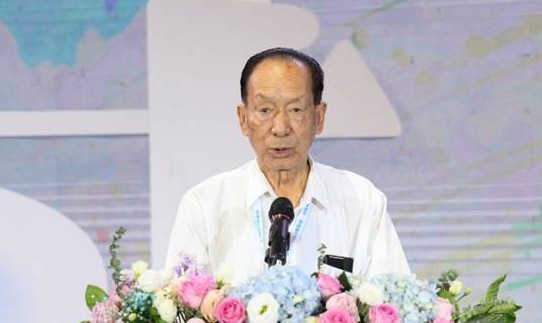
Xiao Xue, Bai poet, famous literary critic, essayist, and Director of Long March of Chinese Poetry Organizing Committee. Author of poetry collection "The Pastoral of Life-On Ai Qing's Poetry", "Talking about Collection", "Spring of New Poetry", "Aesthetics of Poetry", "Facing the New Era", "Poetic Beauty of Poetry", "Poetic Beauty of Poetry" "Plucking", poem collection "Spring of the Motherland", "Flower Festival", "Xiao Xue Poem Selection", "Xiao Xue Love Poem Selection", "Love", "Song of Green Leaf", prose collection "Snow and Carved Plum", " "Tasteless Taste", "Cangshan Erhai", "Xuexue Preface and Postscript" and more than 30 titles. Won the Outstanding Contribution Award for Contemporary Chinese Minority Literature Research, Chinese Contemporary Outstanding National Poetry Poetry Award, Chinese Contemporary Poetry Soul Gold Award, Italy Montero International Literature Award Special Award, New York East-West Artists Association Lifetime Achievement Award, Mekong Literature Award, etc. Xiao Xue, one of the literary circles in Yunnan and one of the nation's leading figures in minority literature President, Vice President and Honorary President of Chinese Poetry Society, President of Chinese Contemporary Minority Literature Research Association, Vice President of Chinese Minority Writers Association.
Click to enter the Chinese version(点击阅读中文版)